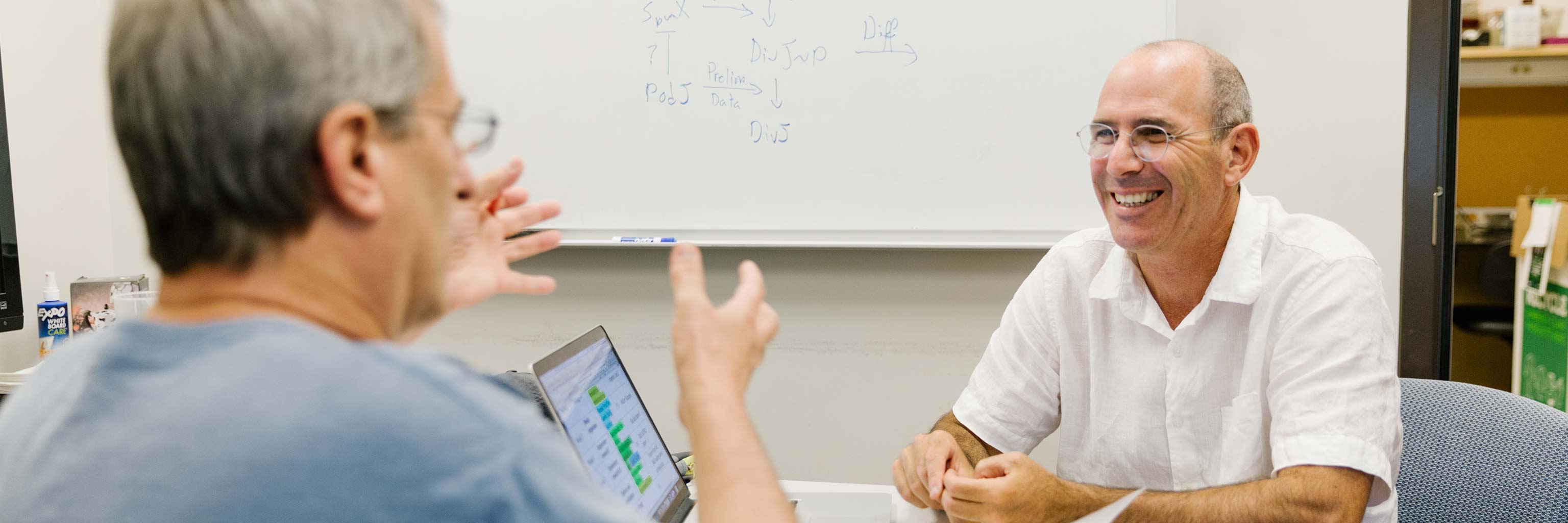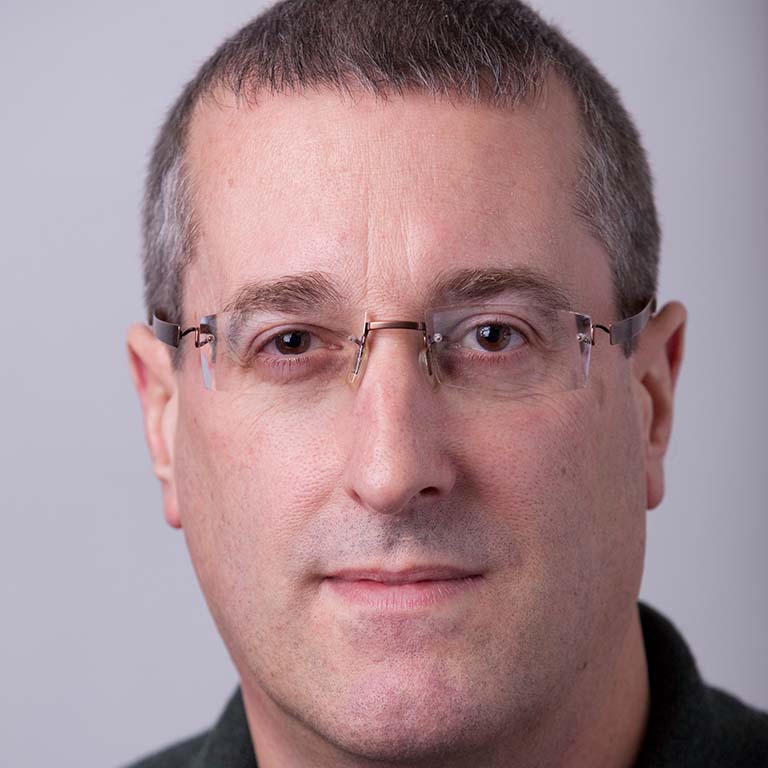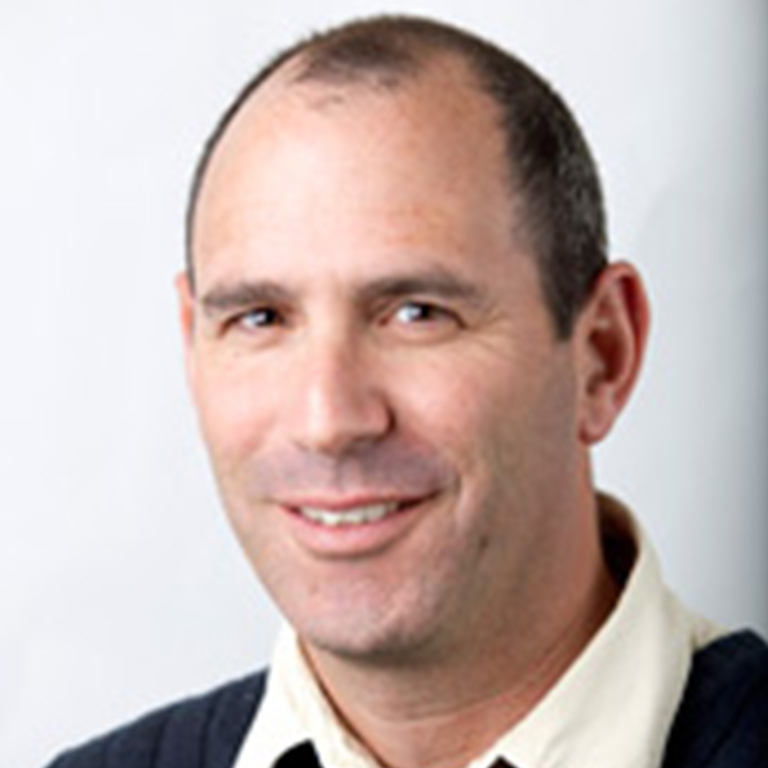Yves Brun, the Distinguished Professor of Biology who will co-teach COLL-C105: “From Discovery to Practice: Putting Science into Action,” can explain what students will learn from the course in three words: “Science is fun.” That may sound like a simplistic take-away, especially coming from a celebrated microbiologist who heads his own lab. The Brun Lab conducts important research into questions about how bacteria age and how they organize their cells to take on characteristic shapes and perform functions like adhering to a surface.
Brun explains that he hopes students will leave the course understanding that, at its heart, “science is done by human beings who find it interesting and have fun doing it.” In his own case, he says, “after 23 years, I still find bacteria absolutely fascinating. One of the things I really like about bacteria is that you can find diversity and variation in very simple ways that allow you to ask basic questions about how a cell functions.”
Amit Hagar, who chairs the Department of the History and Philosophy of Science, will co-teach the course with Brun. Hagar, too, can sum up the course’s central thesis quite simply: “It takes a campus to produce a scientist.” Hagar means that “apart from biology courses and labs, science students need to learn about themselves as human beings and about other human beings.” Students must understand, he explains, that “science is not perfect; it’s done by human beings who have egos, and it has defects. But despite these, it’s the only way we’re going to be able to study nature.”




